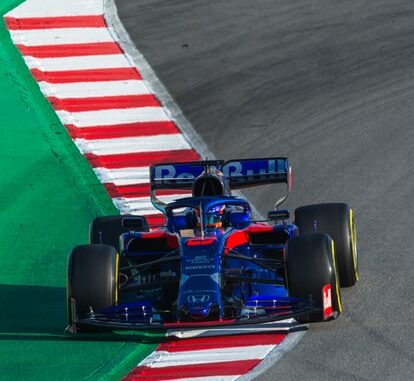
Out of seemingly nowhere, Honda announced on Friday that they are pulling out of Formula 1 (F1) at the end of 2021.
Yes, Honda, the same company that makes your cute little Fit or Civic, also makes race engines capable of producing close to 1,000 horsepower and propelling an F1 car around a three and a half mile track in under 90 seconds. Hard to believe, right?
In a press release, Honda revealed that their decision was driven by their goal of reaching net-zero carbon emissions by 2050. To do this, the company has to devote a large amount of facilities and fiscal resources to the development of new and cleaner technology for their road cars. That being said, being in F1 won’t be their top priority.
Creating F1 engines is an extremely expensive task. With the current V6 hybrid power units using a complex system of a standard combustion engine combined with a powerful electric motor and battery, total costs for a company to develop one can reach over a staggering $1 billion. It’s no wonder that Honda would instead like all of that money to go towards a greener future.
Currently, the Japanese manufacturer provides engines to two teams: Red Bull (RB) and its “sister team,” Alpha Tauri (AT). Using Honda power, the pair have won a combined five races in three seasons. It may not sound like much, but the “New England Patriots of F1,” Mercedes, have won nearly 75% of all races since 2014. Any engine that’s not a Mercedes winning a race is rare.
What does this mean for the two teams for 2022? They better start shopping for new power units, and fast.
There are only three other engine suppliers in F1: Mercedes, Ferrari and Renault. With Mercedes supplying four teams in 2022, adding on another two teams to that list may be too daunting of a task for them. Ferrari, who supplies three teams, has stumbled recently in development, meaning their current engines aren’t powerful enough to win races.
That leaves Renault, who will only supply one team (themselves) by 2022. Their hybrid engines infamously powered RB cars from 2014 to 2018. While RB did win races with them, the two sides didn’t get along after a disappointing 2015 season and a persistent lack of progress. They messily separated at the end of the 2018 season.
If RB and AT want the best chance of winning, Mercedes is their best bet. Their V6 hybrid engines have dominated the sport since 2014, and any team using one is likely to see a performance boost. The likeliness of that happening is low, however. Since Ferrari is a few years off from producing a competent engine again, Renault is the pair’s last choice and the most likely one.
If RB chooses Renault, it would be sort of like a divorced couple getting back together out of necessity: pretty awkward.

